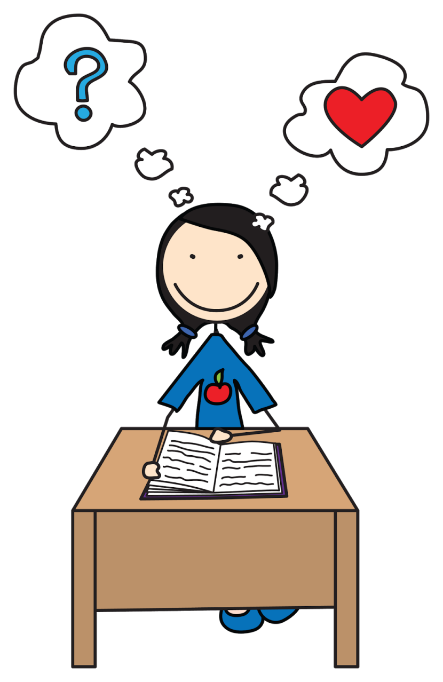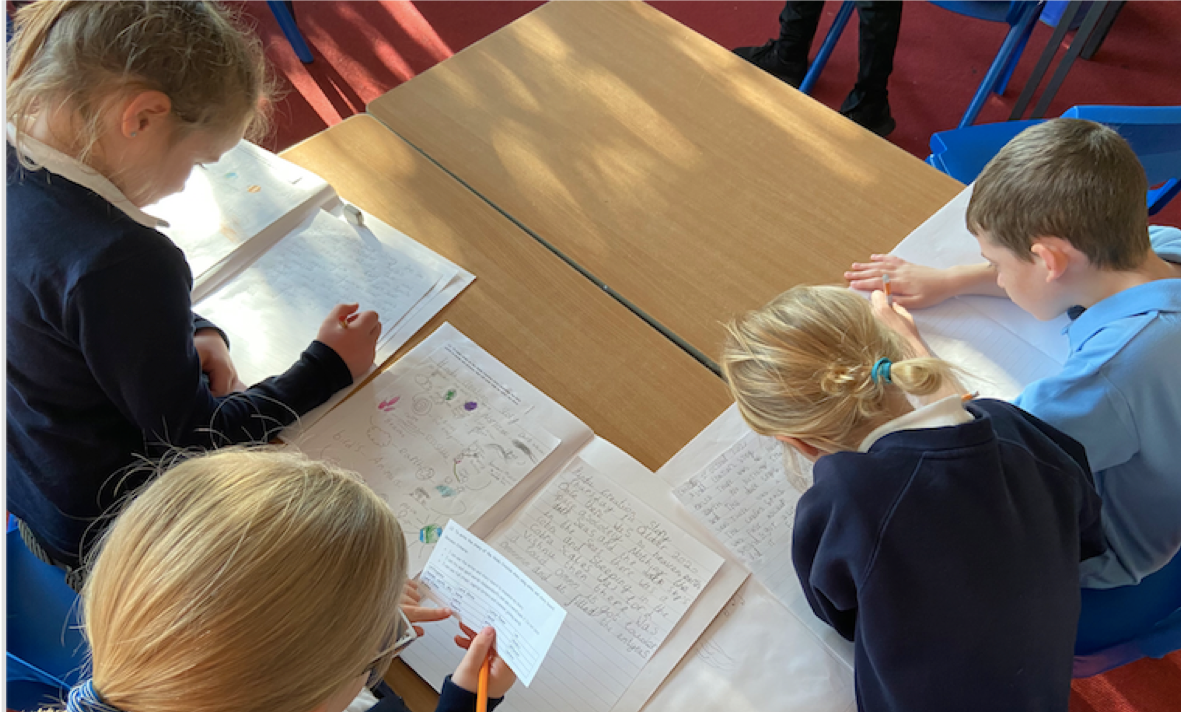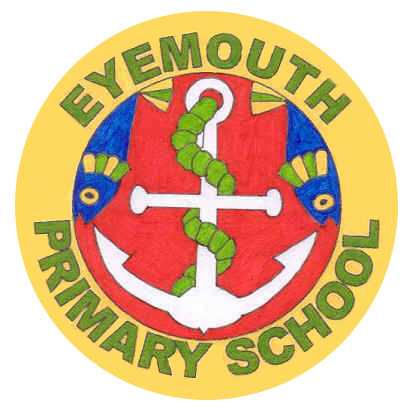Curriculum
At Eyemouth Primary, we foster an environment where our pupils become active participants in their learning. Education should not be passive but an exciting, fun and challenging time in a child’s life. We aim to give children a breadth of experiences and a hunger for knowledge, equipping our young people with skills they will take to the world of work and life.
A Curriculum for Excellence, published in 2004 following the National Debate on Education in Scotland, sets out values, purposes and principles to enable children and young people to reach their full potential. At Eyemouth we have fully embraced the guidance in these documents to improve the quality of learning and teaching as well as increasing attainment and achievement for all children, including those who need additional support in their learning.
Entitlements
- All learners are entitled to experience the highest possible quality of learning and teaching that prepares them effectively for learning, work and life.
- All learners are entitled to experience learning and teaching that supports them in becoming literate, numerate and healthy.
- All learners are entitled to experience learning and teaching that promotes equal opportunity and non-discrimination based on social circumstances, gender, race, religion, cultural beliefs, disability or sexual orientation.
- All learners are entitled to opportunities and encouragement to participate, to their maximum potential and to be consulted and involved indecisions affecting their learning.
- All children are entitled to become successful learners, confident individuals, effective contributors and responsible citizens through the values and principles of Curriculum for Excellence.
The Curriculum
Curriculum for Excellence (CfE) is bringing learning to life in the way education is delivered for all 3-18 year olds — in ELC, primary, secondary, at college, workplace or community learning. It takes a fresh approach to what, how and where young people learn. It aims to raise standards, improve knowledge and develop skills, closing the gap between the lowest and highest performers. Ultimately, it aims to nurture young people as successful learners, confident individuals, effective contributors and responsible citizens.
At Eyemouth Primary School we aim to:
- Establish a safe, secure and stimulating learning environment where everyone is respected and valued.
- Ensure that pupils are active participants in their own learning and can confidently identify their strengths and what they need to do to improve.
- Use a variety of informed, differentiated teaching approaches which take account of prior learning and are matched closely to individual needs.
- Develop learner’s curiosity, creativity and ability to think critically through well-planned tasks which involve solving problems, working collaboratively and independently.
- Enable pupils to understand the purpose of their learning, make connections and apply their skills and knowledge to real life situations.
- Provide opportunities for children to develop confidence and resilience through personal success and achievement in our wider learning environment.
- Reflect upon and share our good practice to ensure inspiring learning and teaching continues to thrive.

How does Curriculum for Excellence work?
The ‘learner journey’ will be joined up from 3-18 to avoid gaps and overlaps in learning and to make the most of the achievements outside school.
- Learners will work at a pace that suits, with enough challenge and support to stretch them.
- Lessons will be more engaging, inspiring and relevant to everyday life.
- Teachers will make connections between subjects, helping children make sense of the world.
- Children will develop an understanding of how to learn and how to use their learning, not just memorise information to pass tests. This will help them adapt in an uncertain future with the ability to think for themselves, make sound judgements, challenge, enquire and find solutions.
- There is more focus on knowledge and skills — including vital skills: literacy and numeracy, which underpin all learning and are critical in life.
- There are changes to assessment and how progress is reported to give learners, parents and employers better information on potential and achievement.
Physical Education
- At Eyemouth Primary School we have a PE Teacher in post to teach all pupils. Class teachers ensure that a further hour of PE is taught, where appropriate, so every child has the expected 2 hours of PE a week.
- Children are expected to wear appropriate clothing (see uniform)
Active Schools
The Active Schools team, run by Live Borders, are responsible for putting in place and driving forward a wide range of sports and activities in local schools and supporting the local communities, to provide children and young people the opportunities to participate in physical activity and sport.
Home learning
Children are provided with homework opportunities which include regular reading, spelling and numeracy tasks. We make use of technology wherever possible to support learning at home with digital resources such as Mathletics, TTrockstars and Numberbots being used to develop skills in mathematics. Also, eBooks are used alongside Accelerated Reader to promote reading skills and Showbie is used as a platform to share homework tasks in P4-7 classes. A lunchtime homework club is available for children too.
The wider curriculum
Extracurricular activities
From time-to-time, extra-curricular activities are available and information about these, is provided to parents of relevant pupils. The school works closely with our Active Schools Coordinator, Kendall Smith, to provide a wide range of after-school activities.
Inter-school sport is therefore encouraged, with school pupils usually taking part in hockey, rugby and dance festivals at different times of the year. The school believes in the importance of broadening and enriching the child’s learning experience and with this in mind, arranges outings whenever suitable opportunities arise. Residential experiences are offered to children in P7 at the end of May, beginning of June each year.
Assessment
Assessment is a vital part of learning and teaching. It should be an ongoing process and involve the learner making decisions about their next steps. This takes two forms, assessment that happens at the end of a block of learning that checks how much a child has understood (summative) and assessment that is continuous (formative).
Summative Assessment
This is used to check how successful the learner has been at the end of a piece of work. It is one way of gathering evidence for reporting to parents or measuring attainment. It is only valid when used alongside evidence gathered from formative assessment. Standardised assessments are also used when appropriate to gather evidence on a child’s progress in a curricular area. This reflects on their progress in comparison to a cross-section of children of a similar age.
Formative Assessment
Pupils know what they are learning, how they will recognise if the learning has taken place and what steps they can take to bridge the gap between what they know and need to learn by this process. It is evident in many guises in the classroom and is an integral part of learning and teaching.
Some examples are outlined below:
- Learning Intentions and Success Criteria
- Wait Time
- Traffic Lights
- Thumbs Up
- Think, Pair, Share
- Share an Answer with the Group/Class
- Two Stars and a Wish
- Self and peer assessment
Assessment evidence allows teaching staff to track the progress children are making and to adapt their practice appropriately. Staff can then identify if a child is struggling for whatever reason and needs extra support. By the same token, staff identify children making considerable progress and can consider ways to challenge the child and ensure progress is maintained. It is important that evidence gathered through assessment be used to improve learning and teaching in our school.
We are committed to involving learners and their parents in learning and to regularly report on progress they are making.
Reporting
Reporting takes many forms. It is used to both give feedback on achievements and next steps and to create an agenda for discussion. Discussions take place between children and their peers, their teacher and their parents. Listed below are examples of reporting procedures in place.
Parental Consultations
Parents are invited twice a year to discuss their child’s learning with the class teacher. This is normally a 10-minute appointment where the teacher will share progress and next steps and can answer questions. It may be necessary to arrange a further appointment if the discussion requires more time. Pupils who receive additional support will also be offered an appointment with the Support for Learning Teacher. We would encourage parents with concerns or questions to request an appointment at any time in the year. We are always happy to meet.

